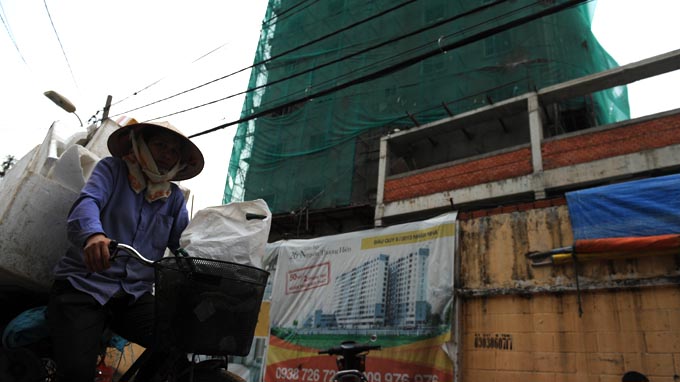Vietnam's state-owned enterprises (SOEs) will be banned from risky investment, especially in real estate, banking, and securities from the end of this year, a new government decree says.
According to Decree 91 on investing, using, and managing state capital and assets at local firms, signed by the government on Tuesday last week, SOEs will be officially prohibited from capital contributions or investment in real estate, banking, insurance, securities and investment funds, except in special cases allowed by the government, starting in December.
If SOEs have already contributed state capitals in these areas without the prime minister’s permission, they must restructure their portfolios and divest completely from them, as prescribed.
If the firms refuse to comply, their boards of directors and chairmen will be punished in line with the law.
The decree also stipulates that SOEs should have the responsibility to preserve and grow the state capital invested, and any fluctuations in the capital have to be reported to state management agencies.
This is the second time the government has stepped up the management of state capital in risky business sectors after a resolution, issued four years ago, required SOEs not to invest in non-core business areas.
As a result of Decree 91, the strict management of state capital is reinforced and should be done consistently, according to the Vietnam News Agency.
Losses caused by SOEs investing in non-core business have adversely affected the image and performance of the public sector.
In late 2011, SOEs invested VND23.744 trillion ($1.07 billion) in non-core business, of which the largest amount was channeled into banking with VND11.4 trillion ($513 million), followed by real estate (VND9.28 trillion), insurance (VND1.68 trillion), securities (VND696 billion), and investment funds (VND677 billion).
At present, the process of divestment from the five risk areas has been initiated, but is yet to be completed.
The total value of the divestment, according to the book value as of August 2015, reached VND13.8 trillion ($621 million), while the amount actually collected was VND17.77 trillion ($796 million).
In addition, the decree also points out that the state is allowed to acquire a part or the entirety of certain companies to restructure the national economy, ensure security, and supply essential products and public services to society.
The acquisition of a part or the whole of a business will be done through the purchase of shares or equity, according to the decree.
Earlier this month, the government announced that it will divest all of its shares in ten big enterprises, including Vinamilk, Vietnam’s largest dairy producer, giant telecom firm FPT Telecom, and leading insurer Bao Minh, which will generate $3 billion, Deputy Prime Minister Vu Van Ninh said in a directive on Tuesday.
The government owns the shares via the State Capital Investment Corporation (SCIC), and state holdings in the other nine enterprises are estimated to be worth $500 million.
Like us on Facebook or follow us on Twitter to get the latest news about Vietnam!




















































